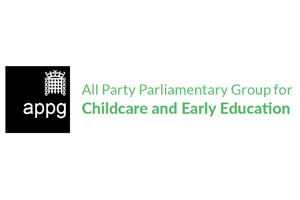MPs – Early years catch-up premium needed struggling sector
The APPG for Childcare and Early Education, of which the National Day Nurseries Association (NDNA) is a sponsor, calls for the Government to provide almost £3,000 per child to tackle underfunding.

A cross-party group of parliamentarians has today called on the Government to use the Spending Review to address funding shortages in the early years sector.
The All-Party Parliamentary Group for Childcare and Early Education has written to the Chancellor Rishi Sunak and Education Secretary Gavin Williamson pressing them to work in partnership to address flaws in the funding of early years provision.
A survey of 1,300 parents carried out by the APPG in January found that nine out of ten parents believe the early years sector is not sufficiently funded. In addition, the Early Years Alliance has empirical data showing that there is a shortfall of £2.60 per child, per hour, for every 30-hours place.
The APPG urges the Government to use the upcoming CSR to provide a catch-up premium of £2,964 per child, per year, under the 30-hours entitlement to ensure the early years sector can play its role in meeting the needs of our children and supporting parents getting back into work to help drive our post-COVID economic recovery.
Additionally, the underfunding of places has caused a shortfall of availability which affects parental employment opportunities – further affecting the economic recovery of the country. FOI requests from the National Day Nursery Association found that three-quarters of local authorities reported underspends of £62m in Government funding for childcare places. The existing system is not delivering the current funding to providers, who desperately need it.
Therefore, the APPG also is calling on the Government to conduct a meaningful review of early years funding covering the following areas:
- A multi-year funding settlement to allow providers certainty and planning over the coming years
- Developing a mechanism for funding allocation to address rising costs, especially ensuring providers can pay early years professionals the National Living Wage
- Simplifying the funding system to ensure that Government funding follows a child and that parental understanding around the entitlement is improved, especially for two year old’s and tax-free childcare
- Ensures effective use of public money and maximum investment in children’s early education and care by minimising barriers like VAT and business rates on providers delivering publicly funded places
- All allocations of early years funding are undertaken considering the needs of children with SEND across all settings.
- Setting out a clear vision for the early years and childcare workforce and a restatement of the crucial importance of achieving a well-qualified, high status and better rewarded professionals.
Purnima Tanuku OBE, Chief Executive of NDNA, said: “Nurseries and other early years providers have been vital throughout this pandemic in supporting children’s early education and providing a sense of normality for them through repeated lockdowns.
“Equally they are an essential part of our national infrastructure, enabling parents to return to work and supporting local economies.
“But the evidence all shows that the early years sector is underfunded for years for the excellent support it delivers. Parents, providers and politicians all recognise this and now the Government must act. It must offer urgent early years recovery funding and business rates relief for childcare businesses and bring the Early Years Pupil Premium in line with rates for eligible primary school pupils.
“In the long-term, we have to find the solutions to ensure that the childcare system works for parents, providers and the workforce, but most importantly is delivering high quality early education for our youngest children.”
In the Group’s Spending Review submission, APPG Chair, Steve Brine MP writes: ‘The early years sector is the fourth emergency service which has an essential role to play in helping our country build back better and level-up after the pandemic. However, the evidence shows that the early years’ sector is under-funded and its dedicated professionals do not believe they are valued at the same level as other educators, despite the early years being a formative period for child development, which can have an indelible impact upon a child’s future. Providers are concerned by Ofsted data showing that numbers of children in settings of all types are leaving.’
‘The APPG believes that the measures it proposes will help in supporting our hard-working early years sector and ensure that the needs of the child are met as the UK emerges from the pandemic.’
Watch the full APPG meeting here.
- APPG
- Chancellor Rishi Sunak
- childcare
- early years
- early years education
- economic recovery
- Government underfunding
- Spending Review
Similar Articles
Early Years Maths activities that build confidence

Early years recognised across the New Year Honours list


